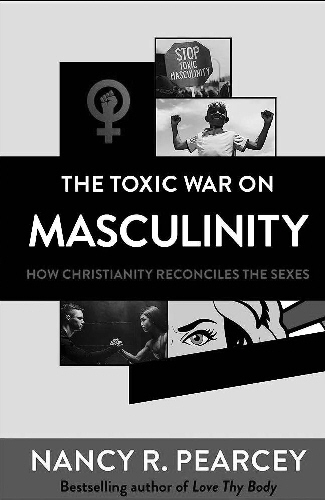Half The Battle: A Review Of Nancy Pearcey’s "The Toxic War On Masculinity" -- By: Steven Wedgeworth
Journal: Eikon
Volume: EIKON 05:2 (Fall 2023)
Article: Half The Battle: A Review Of Nancy Pearcey’s "The Toxic War On Masculinity"
Author: Steven Wedgeworth
Eikon 5.2 (Fall 2023) p. 86
Half The Battle: A Review Of Nancy Pearcey’s The Toxic War On Masculinity
Steven Wedgeworth is the rector of Christ Church (Anglican) in South Bend, Indiana. He has previously written for Eikon, Desiring God, The Gospel Coalition, and Public Discourse. He is a founding member of the Davenant Institute, with whom he continues to write. Steven also has a new essay in a forthcoming multi-author book to be published by Crossway.

Nancy R. Pearcey, The Toxic War on Masculinity: How Christianity Reconciles the Sexes. Grand Rapids, MI: Baker Books, 2023.
Nancy Pearcey’s new book defends true masculinity from its most recent critics. The toxicity, as she sees it, is not masculinity itself, but rather the war on masculinity. Pearcey attempts to clear conservative Christians, including evangelicals, from accusations that their theology leads to abuse. She sets forth a compelling counter-narrative, showing that those conservative evangelicals who regularly attend church actually have the lowest rates of domestic abuse or divorce and report the most happiness and relational satisfaction. Pearcey also identifies what she sees as unhelpful distortions of masculinity. Various culprits like the Industrial Revolution, Victorian sentimentality, and Feminism are held out as creating conditions or
Eikon 5.2 (Fall 2023) p. 87
ideas which undermined true biblical masculinity. As a corrective to these, Pearcey points to what she calls “the Good Man” and calls both men and women to appreciate his virtue.
The Toxic War on Masculinity defends the natural goodness of the distinctions between the sexes and maintains that God has given headship to the man. Pearcey argues from a biblical perspective, and she seeks to defend what she understands to be the best part of the historic Christian tradition and even the recent evangelical legacy. At the same time, The Toxic War on Masculinity does also criticize “traditional” gender arguments, especially the notion that men are more naturally wild or inclined towards sin and that women should play the role of reformer. More than this, though, there are pronounced egalitarian elements in Pearcey’s argument, and it is not clear that her own views are entirely settled or consistent. As such, The Toxic War on Masculinity occupies a sort of middle position in current debates over gender roles. While there is much to applaud about the book, it has some notable weaknesses. Some of the book’s inconsistencies might in fact highlight larger tensions among complementarian evangelicals today. Because of this, Pearcey’s work deserves...
Click here to subscribe
